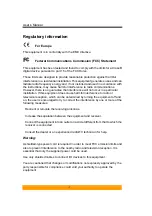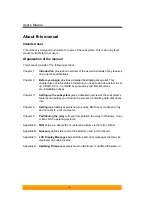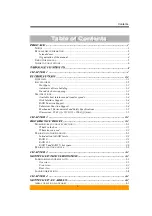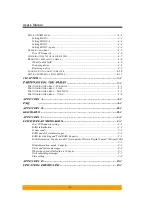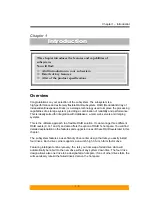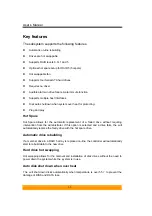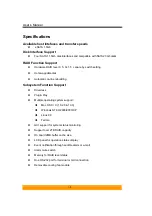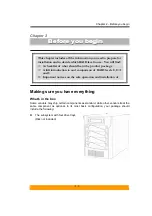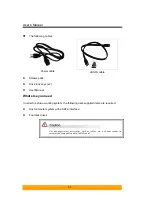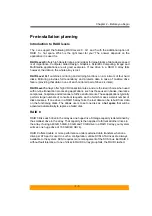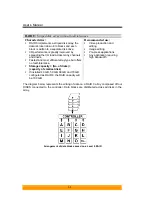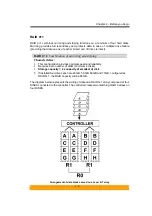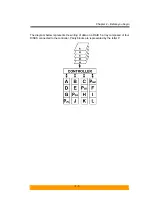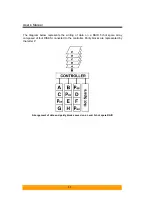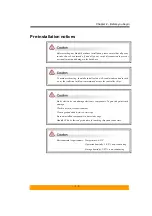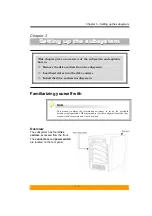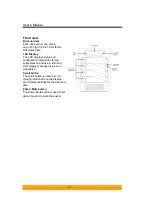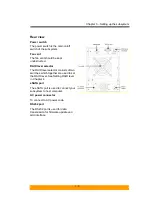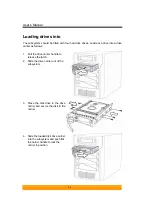
Chapter 1 – Introduction
- 1-5 -
Mechanical, Environmental and Safety Specifications
Dimensions: 286.5
(L)
x152.8
(W)
x 206.4
(H)
(mm)
z
Host
Connectors
(depending on hardware configuration):
One eSATA connector
z
Interface
Connectors:
One RS-232 connector
z
Operation temperature: 0 ~ 35
℃
z
Operation humidity: 5 ~ 95 %, non-condensing
z
Storage
humidity:
5%~95%, non-condensing
z
200 W power supply
100~264V(+/-10%),47~63Hz
5V/10 A, +12V/10 A, +3.3V/5A
Specifications are subject to change without notice.
Summary of Contents for S4-ESTT
Page 1: ...easyRAID S4 ESTT eSATA 1 5Gb to Serial ATA Disk Array System User Manual Version 1 0 ...
Page 2: ......
Page 3: ...S4 ESTT eSATA 1 5Gb to serial ATA Disk Array System User Manual ...
Page 4: ......
Page 9: ...Preface 3 UL Listed This equipment meets UL s safety requirements ...
Page 20: ......
Page 30: ......
Page 46: ......
Page 53: ...Chapter 5 Partitioning the array 5 7 ...
Page 56: ......




